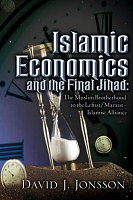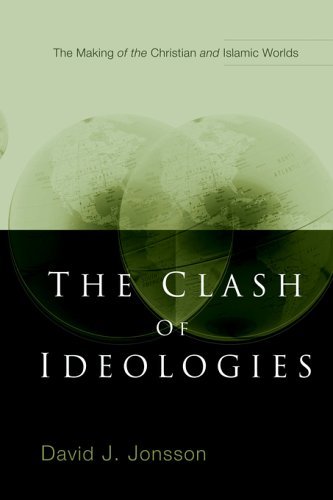President Bush’s Speech – The Global Impact of Iran and Iraq
David J. Jonsson
January 12, 2007
With conflicts heating up both in the Pacific, with the threat of North Korea becoming a nuclear force, and the Middle East, the need for diplomacy becomes more critical. However, diplomacy offers little hope in dealing with nations committed to bring about the apocalypse. Appeasement as occurred during the rise of the Third Reich will not solve the problem. Becoming involved in a conflict between the Sunni and Shiite factions each seeking their domain and spheres of influence could result in a no-win war. There is little doubt that Russia and China, the recent supporters of Iran and North Korea, as indicated by their reluctance of supporting sanctions will potentially become involved. As I mentioned in my Op-Ed of November 26, The Grand Chess Masters: The Bear and the Dragon, “While the Iraq crisis continues, the strategy of the Grand Chess Masters—Russia the bear and China the dragon along with their pawns the Leftists, Marxists and Islamists continue to develop and put in place their strategy for the ultimate goal of world domination.”
It will also become increasingly difficult to build our alliances with Europe. The EU recognizes that it is dependent on Russia for a major portion of their energy. Europe will import 84 per cent of its natural gas and 93 per cent of its oil in 2030 according to the Financial Times on January 9, Merkel concern over N-plant closures and the article from the Financial Times of January 9 Russia shuts oil pipeline to Europe, Russia will be supplying 70 per cent of Europe’s total energy by 2030.
The West must recognize who the enemy is and fully comprehend the nature and goals of that enemy. Though President Bush’s national address on January 10 was about Iraq, his most provocative comments focused on Iran. He correctly suggested that if our efforts failed in Iraq, "Iran would be emboldened in its pursuit of nuclear weapons." A nuclear-armed Iran would embolden Algeria, Egypt, Morocco, Tunisia, UAE and Saudi Arabia and possibly others to follow suit according to the article in the Times (UK) of November 4, Six Arab states join rush to go nuclear. Bush also implied military threat against both Iran and Syria. See also: Nuclear Proliferation--Options In A Perfect Storm.
As S. Enders Wimbush has written in the Spectator, on January 11, 2007, The End of Deterrence: “Iran is fast building its position as the Middle East's political and military hegemon, a position that will be largely unchallengeable once it acquires nuclear weapons. A nuclear Iran will change all of the critical strategic dynamics of this volatile region in ways that threaten the interests of virtually everyone else… It should surprise no one that quiet discussions have already begun in Saudi Arabia, Egypt, Turkey, and elsewhere in the Middle East about the desirability of developing national nuclear capabilities to blunt Iran's anticipated advantage and to offset the perceived decline in America's protective power. This is just the beginning. We should anticipate that proliferation across Eurasia will be broad and swift, creating nightmarish challenges. Iran, with its well-known support of Hezbollah, is a particularly good candidate to proliferate nuclear capabilities beyond the control of any state as a way to extend the coercive reach of its own nuclear politics.
Sabrina Tavernise, John F. Burns, New York Times in their article of January 11, 2007 BUSH’S NEW PLAN FOR IRAQ - SHIITES WARY: They see U.S. interfering with power won at polls presented the Shiite case for not increasing U.S. forces in Iraq. “U.S. troops, Shiite leaders say, should stay out of Shiite areas and focus on fighting Sunni insurgents… There are misgivings, too, among other Shiite leaders, including some whom Bush has courted recently in a U.S. bid to form a bloc of politicians from the Shiite, Sunni and Kurdish communities that can break al-Maliki's political dependence on the radical Shiite cleric Muqtada al-Sadr. Shiite suspicions of the U.S. troop increase reflect a tectonic shift in the political realities in Iraq. Shiites, the principal victims of Saddam Hussein's repression, had joined with Iraqi Kurds in hailing the U.S.-led invasion in 2003, seeing it as opening their way to power. But once they consolidated their control through two elections in 2005, they began distancing themselves from the Americans, seeing their liberators increasingly as an impediment to the full control they craved. By contrast, moderate Sunnis, who were deeply alienated by the U.S. occupation at an earlier stage of the war, are now looking to Americans for protection, as Shiite militias have moved into Sunni neighborhoods in a deadly cycle of revenge. On Wednesday, moderate Sunni politicians hailed the idea of more U.S. troops.”
The Text of joint statement from Democratic leaders by Nancy Pelosi, Senate Majority Leader Harry Reid, House Majority Leader Steny Hoyer and Senate Democratic Whip Richard Durbin following President Bush's address to the nation Wednesday counters the position of President Bush – the Commander and Chief – and supports the Iranian backed position of radical Shiite leaders in Iraq.
· “Rather than escalating our involvement in Iraq by sending additional troops, we believe that a plan for the way forward in Iraq requires these elements:
· Shifting greater responsibility to the Iraqis for their security and transitioning the principal mission of our forces from combat to training, logistics, force protection, and counter terrorism operations;
· Beginning the phased redeployment of our forces in the next four to six months; and
· Implementing an aggressive diplomatic strategy, both within the region and beyond, which reflects the continuing obligation of the international community to help stabilize Iraq and which assists the Iraqis in achieving a sustainable political settlement, including by amending their constitution.”
Care must also be exercised in overwhelming support to the Sunni Factions,
since they seek to recreate the Caliphate (See also: Caliphatism -
Establishing the "Islamic Kingdom of God on Earth") as a counter to the developing Shiite Crescent encompassing Iraq with
their Shiite led government and stretching from the Mediterranean to Pakistan.
See: Iran
Reaches the Mediterranean.
The funding for the enemy comes from the dependence on energy from the enemy, which includes multiple nations and movements (Leftist/Marxist – Islamist Alliance) seeking to create a “new world order” under a totalitarian form of government. The impact of the funding is amplified by the Foreign Direct Investment (FDI) in infrastructure, technology, and facilities and support of financial services provided by major money Center Banks. See also my Op-Ed: Islamic Economics and Shariah Law: A Plan for World Domination.
The U.S. is in a position to develop on a crash basis a program of Energy Independence. Reducing the U.S. energy dependence on foreign oil will significantly reduce the threat of a future war. See: Give Me Energy Security And I Will Give You A Foreign Policy.
Diplomacy and military strength may deter the expansion of the threat of a global confrontation, but the West must address its lack of energy security and dependence on ‘energy interdependence’ instead of ‘energy independence’. The foreign policy of the United States and Europe must address the energy, the environment, foreign trade, financial, immigration, homeland security and defense tracks in a unified manner. Similarly, addressing the crisis in the Middle East, including the Israel-Palestine solution also involves solving relations with Russia, China and Eurasia. This will require commitment and pain now to our way of life. It will require sacrifice. The alternative will be even worse.
Bio: David J. Jonsson is the author of Clash
of Ideologies —The Making of the Christian and Islamic Worlds, Xulon
Press 2005. His new book: Islamic
Economics and the Final Jihad: The Muslim Brotherhood to the Leftist/Marxist -
Islamist Alliance (Salem Communications (May 30, 2006). He received his
undergraduate and graduate degrees in physics. He worked for major corporations
in the United States and Japan and with multilateral agencies that brought him
to more that fifteen countries with significant or majority populations who are
Muslim. These exposures provided insight into the basic tenants of Islam as a
political, economic and religious system. He became proficient in Islamic law
(Shariah) through contract negotiation and personal encounter. David can be reached at: djonsson2000@yahoo.co.uk

This Page

![]() BACK to
America At War - Salem The Soldier's Homepage
BACK to
America At War - Salem The Soldier's Homepage

